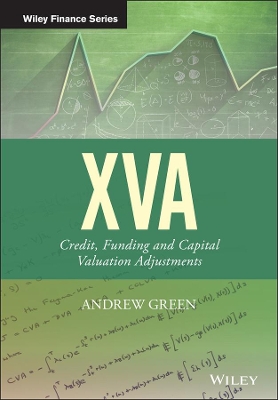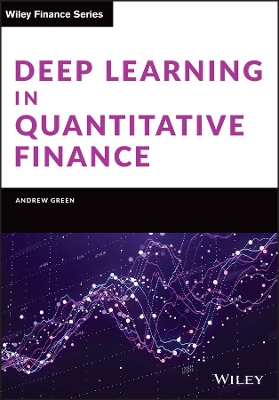The Wiley Finance
2 total works
Thorough, accessible coverage of the key issues in XVA
XVA – Credit, Funding and Capital Valuation Adjustments provides specialists and non-specialists alike with an up-to-date and comprehensive treatment of Credit, Debit, Funding, Capital and Margin Valuation Adjustment (CVA, DVA, FVA, KVA and MVA), including modelling frameworks as well as broader IT engineering challenges. Written by an industry expert, this book navigates you through the complexities of XVA, discussing in detail the very latest developments in valuation adjustments including the impact of regulatory capital and margin requirements arising from CCPs and bilateral initial margin.
The book presents a unified approach to modelling valuation adjustments including credit risk, funding and regulatory effects. The practical implementation of XVA models using Monte Carlo techniques is also central to the book. You'll also find thorough coverage of how XVA sensitivities can be accurately measured, the technological challenges presented by XVA, the use of grid computing on CPU and GPU platforms, the management of data, and how the regulatory framework introduced under Basel III presents massive implications for the finance industry.
- Explores how XVA models have developed in the aftermath of the credit crisis
- The only text to focus on the XVA adjustments rather than the broader topic of counterparty risk.
- Covers regulatory change since the credit crisis including Basel III and the impact regulation has had on the pricing of derivatives.
- Covers the very latest valuation adjustments, KVA and MVA.
- The author is a regular speaker and trainer at industry events, including WBS training, Marcus Evans, ICBI, Infoline and RISK
If you're a quantitative analyst, trader, banking manager, risk manager, finance and audit professional, academic or student looking to expand your knowledge of XVA, this book has you covered.
Deep learning, that is, the use of deep neural networks, is now one of the hottest topics amongst quantitative analysts. Deep Learning in Quantitative Finance provides a comprehensive treatment of deep learning and describes a wide range of applications in mainstream quantitative finance. Inside, you’ll find over ten chapters which apply deep learning to multiple use cases across quantitative finance. You’ll also gain access to a companion site containing a set of Jupyter notebooks, developed by the author, that use Python to illustrate the examples in the text. Readers will be able to work through these examples directly.
This book is a complete resource on how deep learning is used in quantitative finance applications. It introduces the basics of neural networks, including feedforward networks, optimization, and training, before proceeding to cover more advanced topics. You’ll also learn about the most important software frameworks. The book then proceeds to cover the very latest deep learning research in quantitative finance, including approximating derivative values, volatility models, credit curve mapping, generating realistic market data, and hedging. The book concludes with a look at the potential for quantum deep learning and the broader implications deep learning has for quantitative finance and quantitative analysts.
- Covers the basics of deep learning and neural networks, including feedforward networks, optimization and training, and regularization techniques
- Offers an understanding of more advanced topics like CNNs, RNNs, autoencoders, generative models including GANs and VAEs, and deep reinforcement learning
- Demonstrates deep learning application in quantitative finance through case studies and hands-on applications via the companion website
- Introduces the most important software frameworks for applying deep learning within finance
This book is perfect for anyone engaged with quantitative finance who wants to get involved in a subject that is clearly going to be hugely influential for the future of finance.

